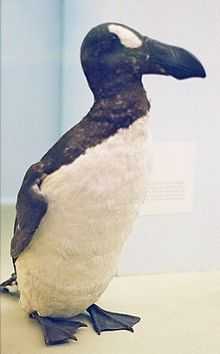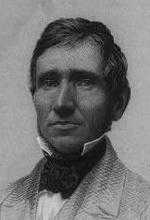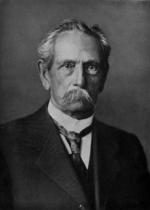1844
| Millennium: | 2nd millennium |
|---|---|
| Centuries: | 18th century – 19th century – 20th century |
| Decades: | 1810s 1820s 1830s – 1840s – 1850s 1860s 1870s |
| Years: | 1841 1842 1843 – 1844 – 1845 1846 1847 |
| 1844 in topic: |
| Humanities |
| Archaeology – Architecture – Art – Literature – Music |
| By country |
| Australia – Brazil - Canada – France – Germany – Mexico – Philippines – South Africa – United Kingdom – United States |
| Other topics |
| Rail Transport – Science – Sports |
| Lists of leaders |
| Colonial Governors – State leaders |
| Birth and death categories |
| Births – Deaths |
| Establishments and disestablishments categories |
| Establishments – Disestablishments |
| Works category |
| Works |
| Gregorian calendar | 1844 MDCCCXLIV |
| Ab urbe condita | 2597 |
| Armenian calendar | 1293 ԹՎ ՌՄՂԳ |
| Assyrian calendar | 6594 |
| Bahá'í calendar | 0–1 |
| Bengali calendar | 1251 |
| Berber calendar | 2794 |
| British Regnal year | 7 Vict. 1 – 8 Vict. 1 |
| Buddhist calendar | 2388 |
| Burmese calendar | 1206 |
| Byzantine calendar | 7352–7353 |
| Chinese calendar | 癸卯年 (Water Rabbit) 4540 or 4480 — to — 甲辰年 (Wood Dragon) 4541 or 4481 |
| Coptic calendar | 1560–1561 |
| Discordian calendar | 3010 |
| Ethiopian calendar | 1836–1837 |
| Hebrew calendar | 5604–5605 |
| Hindu calendars | |
| - Vikram Samvat | 1900–1901 |
| - Shaka Samvat | 1766–1767 |
| - Kali Yuga | 4945–4946 |
| Holocene calendar | 11844 |
| Igbo calendar | 844–845 |
| Iranian calendar | 1222–1223 |
| Islamic calendar | 1259–1260 |
| Japanese calendar | Tenpō 15 / Kōka 1 (弘化元年) |
| Julian calendar | Gregorian minus 12 days |
| Korean calendar | 4177 |
| Minguo calendar | 68 before ROC 民前68年 |
| Thai solar calendar | 2386–2387 |
| Wikimedia Commons has media related to 1844. |
Year 1844 (MDCCCXLIV) was a leap year starting on Monday (link will display the full calendar) of the Gregorian calendar and a leap year starting on Saturday of the 12-day slower Julian calendar.
Events
January–March
- January 15 – The University of Notre Dame receives its charter from Indiana.
- February 27 – The Dominican Republic gains independence from Haiti.
.jpg)
February 28: USS Princeton deaths.
- February 28 – A gun on the USS Princeton explodes while the boat is on a Potomac River cruise, killing 2 United States Cabinet members and several others.
- March 8 – King Oscar I ascends to the throne of Sweden–Norway upon the death of his father Charles XVI/III John.
- March 12 – The Columbus and Xenia Railroad, the first railroad planned to be built in Ohio, is chartered.
- March 21 – The Bahá'í calendar begins.
- March 23 – Edict of Toleration, allowing Jews to settle in the Holy Land.
April–June
- April – The Fleet Prison for debtors in London is closed.
- May 1 – Hong Kong Police Force, the world's second, Asia's first modern police force is established.
- May 23 – Persian Prophet The Báb privately announces his revelation to Mullá Husayn, just after sunset, founding the Bábí Faith (later evolving into the Bahá'í Faith as the Báb intended) in Shiraz, Persia (now Iran). Contemporaneously, on this day in nearby Tehran, was the birth of `Abdu'l-Bahá; the eldest Son of Bahá'u'lláh, Prophet-Founder of the Bahá'í Faith, the inception of which, the Báb's proclaimed His own mission was to herald. `Abdu'l-Bahá Himself was later proclaimed by Bahá'u'lláh to be His own successor, thus being the third "central figure" of the Bahá'í Faith.
- May 24 – The first electrical telegram is sent by Samuel Morse from the U.S. Capitol in Washington, D.C. to the B&O Railroad "outer depot" in Baltimore, saying "What hath God wrought".
- June–July – The Great Flood of 1844 hits the Missouri River and Mississippi River.
- June 6 – George Williams founds the Young Men's Christian Association (YMCA) in London.
- June 15 – Charles Goodyear receives a patent for vulcanization, a process to strengthen rubber.
- June 27 – Joseph Smith, Jr., founder of the Latter Day Saint movement, and his brother Hyrum, are killed in Carthage Jail, Carthage, Illinois by an armed mob, leading to a Succession crisis. John Taylor, future president of The Church of Jesus Christ of Latter-day Saints is severely injured but survives.
July–September

July 3: Great Auk
- July 3
- The United States signs the Treaty of Wanghia with the Chinese Government, the first ever diplomatic agreement between China and the United States.
- The last definitely recorded pair of Great auks are killed on the Icelandic island of Eldey.
- August 8 – During a meeting held in Nauvoo, Illinois, the Quorum of the Twelve, headed by Brigham Young, is chosen as the leading body of The Church of Jesus Christ of Latter-day Saints.
- August 14 – Abdelkader El Djezairi is defeated at Isly in Morocco; sultan Abd al-Rahman of Morocco soon repudiates his ally.
- August 28 – Friedrich Engels and Karl Marx meet in Paris, France.
- September 25–September 27 – The first ever international cricket match is played in New York City, United States v Canadian Provinces.
October–December
- October 22 – This second date, predicted by the Millerites for the Second Coming of Jesus, leads to the Great Disappointment. The Seventh-day Adventist Church denomination of the Christian religion believe this date to be the starting point of the Investigative judgment just prior to the Second Coming of Jesus as declared in the 26th of 28 fundamental doctrines of Seventh-day Adventists. [1]
- October 23 – The Báb publicly proclaimed to be the promised one of Islam (the Qá'im, or Mahdi). He is also considered to be simultaneously the return of Elijah, John the Baptist, and the "Ushídar-Máh" referred to in the Zoroastrian scriptures.[2] He announces to the world the coming of "He whom God shall make manifest". He is considered the forerunner of Bahá'u'lláh – the founder of the Bahá'í Faith – whose claims include being the return of Jesus.
- November 3 – Giuseppe Verdi's I due Foscari debuts at Teatro Argentina, Rome.
- November 6 – The Dominican Republic drafts its first Constitution.
- December 4 – U.S. presidential election, 1844: James K. Polk defeats Henry Clay .
- December 21 – The Rochdale Pioneers commence business at their cooperative in Rochdale, England.
Date unknown
- Swedish chemistry professor Gustaf Erik Pasch invents the safety match.
- Carlos Antonio López becomes dictator of Paraguay.
- The anonymously written Vestiges of the Natural History of Creation is published and paves the way for the acceptance of Darwin's book On the Origin of Species.
- The Free Church Institution is established by Reverend Alexander Duff in Calcutta, India. This is later merged with the General Assembly's Institution to form the Scottish Church College, one of the pioneering institutions that ushers in the Bengali renaissance.
- Annual British iron production reaches 3 million tons.
Births
January–June
- January 9 – Julián Gayarre, Spanish opera singer (d. 1890)
- February 17 – Aaron Montgomery Ward, American department store founder (d. 1913)
- February 20
- Joshua Slocum, Canadian seaman and adventurer (d. 1909)
- Ludwig Boltzmann, Austrian physicist (d. 1906)
- February 21 – Charles-Marie Widor, French organist and composer (d. 1937)
- February 28 – French Ensor Chadwick, American admiral (d. 1919)
- March 10 – Pablo de Sarasate, Spanish violinist (d. 1908)
- March 18 – Nikolai Rimsky-Korsakov, Russian composer (d. 1908)
- March 25 – Adolf Engler, German botanist (d. 1930)
- March 30 – Paul Verlaine, French poet (d. 1896)
- April 16 – Anatole France, French writer, Nobel Prize laureate (d. 1924)
- May 3
- Édouard Drumont, French journalist and writer.
- Kuroki Tamemoto, Japanese general (d. 1923)
- May 14 – Alexander Kaulbars, Russian general and explorer (d. 1925)
- May 17 – Julius Wellhausen, German biblical scholar (d. 1918)
- May 19 – William M. Folger, American admiral (d. 1928)
- May 21 – Henri Rousseau, French artist (d. 1910)
- May 22 – Mary Cassatt, American artist (d. 1926)
- May 23 – `Abdu'l-Bahá, Persian Bahá'í religious leader (d. 1921)
- June 3 – Garret A. Hobart, 24th Vice President of the United States (d. 1899)
July–December
- July 11 – King Peter I of Serbia (d. 1921)
- July 22 – William Archibald Spooner, British scholar and Anglican priest (d. 1930)
- July 28 – Gerard Manley Hopkins, English poet (d. 1889)
- July 30 – Robert Jones Burdette, American minister and sentimental humorist (d. 1914)
- August 5
- Ilya Repin, Russian painter and sculptor (d. 1930)
- Philip H. Cooper, American admiral (d. 1912)
- August 6 – Alfred, Duke of Saxe-Coburg and Gotha (d. 1900)
- August 17 – Menelik II, Emperor of Ethiopia (d. 1913)
- August 22 – George Washington DeLong, American naval officer and explorer (d. 1881)
- August 23 – Hamilton Disston, American land developer (d. 1896)
- August 29 – Edward Carpenter, English Socialist poet (d. 1929)
- August 30 – Emily Ruete, princess of Zanzibar (d. 1924)
- September 16 – Claude-Paul Taffanel, French flutist and composer (d. 1908)
- September 20 – William H. Illingworth, American photographer (d. 1893)
- October 5 – Francis William Reitz, 5th State President of the Orange Free State (d. 1934)
- October 15 – Friedrich Nietzsche, German philosopher (d. 1900)
- October 22 – Louis Riel, Canadian leader (d. 1885)
- October 23
- Robert Bridges, English poet (d. 1930)
- Sarah Bernhardt, French actress (d. 1923)
- October 24 – Karl Lueger, Vienna's mayor (d. 1910)
- October 27 – Klas Pontus Arnoldson, Swedish writer and pacifist, recipient of the Nobel Peace Prize (d. 1916)
- November 2 – Mehmed V, Ottoman Sultan (d. 1918)
- November 10 – Henry Eyster Jacobs, American Lutheran theologian (d. 1932)
- November 11 – Marcelino Crisologo, Filipino politician, playwright, writer and poet (d. 1927)
- November 13 – Andrew Harper, Scottish-Australian biblical scholar and teacher (d. 1936)
- November 23 – Karl Benz, German automotive pioneer (d. 1929)
- December 1 – Alexandra of Denmark, queen of Edward VII of England (d. 1925)
- December 8 – Émile Reynaud, French science teacher and animation pioneer (d. 1918)
- December 18 – Takashima Tomonosuke, Japanese general (d. 1916)
Date unknown
- probable – Abdur Rahman Khan, Emir of Kabul, Emir of Kandahar, Emir of Afghanistan (d. 1901)
- Charles Romley Alder Wright, British chemist (d. 1894)
Deaths
January–June
- January 25 – Jean-Baptiste Drouet, Comte d'Erlon, French marshal (b. 1765)
- January 27 – Charles Nodier, French writer (b. 1780)
- January 29 – Ernest I, Duke of Saxe-Coburg and Gotha (b. 1784)
- February 15 – Henry Addington, 1st Viscount Sidmouth, Prime Minister of the United Kingdom (b. 1757)
- February 27 – Nicholas Biddle, president of the Second Bank of the United States (b. 1786)
- March 8 – King Charles XIV John of Sweden, Jean-Baptiste Bernadotte, French Napoleonic general (b. 1763)
- March 20 – Claude Pierre Pajol, French military leader (b. 1772)
- April 13 – Mamiya Rinzō, Japanese explorer of Sakhalin (b. 1775)
- May 18 – Richard McCarty, American politician (b. 1780)
- June 13 – Thomas Charles Hope, Scottish chemist and discoverer of strontium (b. 1766)
- June 15 – Thomas Campbell, Scottish poet (b. 1777)
- June 27
- Hyrum Smith, American religious leader (b. 1800)
- Joseph Smith, Jr., American prophet, founder of the Church of Jesus Christ of Latter Day Saints (Mormonism) (b. 1805)
July–December
- July 11 – Yevgeny Baratynsky, Russian poet and philosopher (b. 1800)
- July 27 – John Dalton, English chemist and physicist (b. 1766)
- July 28 – Joseph Bonaparte, brother of Napoleon I and King of Naples and Spain (b. 1768)
- July 29 – Franz Xaver Wolfgang Mozart, Austrian composer (b. 1791)
- November 29 – Princess Sophia of Gloucester (b. 1773)
- December 2 – Eustachy Erazm Sanguszko, Polish military leader (b. 1768)
References
- ↑ http://www.adventist.org/beliefs/fundamental/index.html
- ↑ Shoghi, Effendi (1944). God Passes By. Wilmette, Illinois, USA: Bahá'í Publishing Trust. p. 58. ISBN 0-87743-020-9. Archived from the original on 2012-03-09. Retrieved 2012-03-06.

